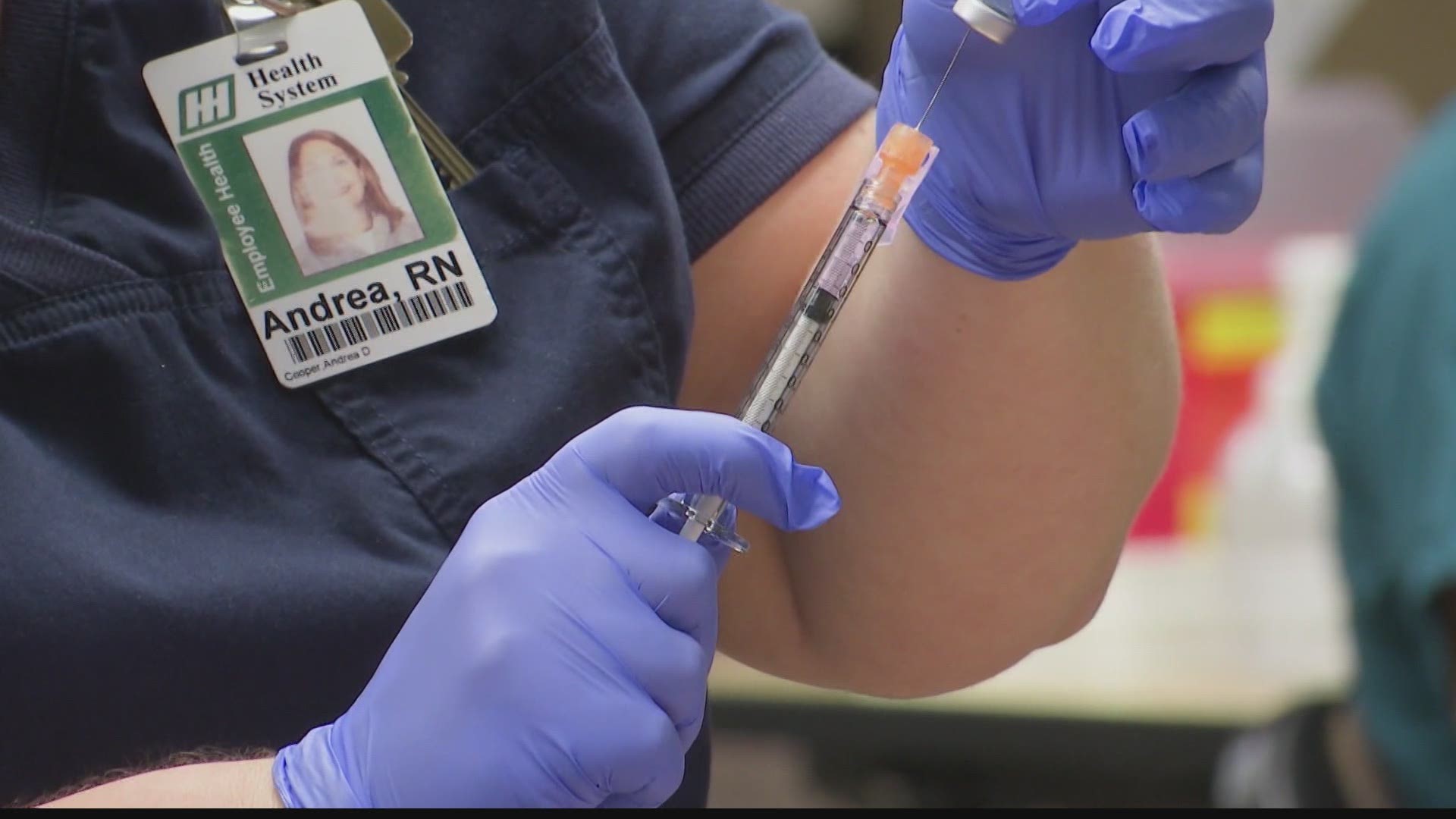HUNTSVILLE, Alabama — The first frontline health care workers at Huntsville Hospital were vaccinated for COVID-19 Wednesday morning.
Over 6,000 doses of the Pfizer COVID-19 vaccine arrived at Huntsville Hospital Tuesday morning. Less than 24 hours later, staff began vaccinating health workers in the Huntsville Hospital System.
Trauma surgeon, Dr. Jeffrey Walker, was the first Huntsville Hospital employee to get the vaccine.
"It's really just like the flu shot. It didn't hurt at all," said Dr. Walker. "It's pretty straight forward. There's a lot of good evidence that it is going to be efficacious, and hopefully we can encourage everyone to go and get vaccinated as soon as possible."
The vaccine comes as a relief for many as we fight through the biggest COVID surge we've seen so far. Now that vaccines are here, employees say there is a sense of hope.
"It's been a long nine months for everyone at Huntsville Hospital and everyone in the community, so hopefully this is the first step in opening a new chapter and getting this under control," said Dr. Walker.
"It's exhausting doing this and feeling like you're just, the numbers are going up, and it's frustrating," said Huntsville Hospital ER Medical Director, Dr. Sherrie Squyres. "This is kind of a ray of hope that there really is a sense that we are going to beat this thing and that life may get back to normal."
Frontline EMS workers and community physicians will start getting vaccinated on Saturday. Hospital officials say they believe most frontline workers in the area will be vaccinated in the next couple weeks.
Dr. Walker says the staff he has spoken to are excited about getting vaccinated and that everyone is signing up as quickly as possible.
"I think everyone has the right to do what they want to do," said Medical ICU Registered Nurse, Rachel Morris. "I believe in medicine, so this is what I think is best for myself."
The staff vaccinated on Wednesday were taken to a separate room after getting the shot. They were monitored for 30 minutes for any adverse effects.
Huntsville hospital received over 6,000 doses of the Pfizer COVID-19 vaccine. Hospital officials say there are five doses per vial.
Two doses of the vaccine are required. The second dose must be given 21 days after the first dose. If the second shot is missed, that person will not attain immunity to the virus.
According to Huntsville Hospital, the Pfizer vaccine does not contain a live virus and will not put someone at risk of getting COVID-19. The vaccine works by instructing the immune system to allow the body to recognize and fight off COVID-19.
The Pfizer vaccine has been shown to be about 95% effective at preventing infection. It was developed using a new mRNA technology. These COVID vaccines are the first to be released using mRNA technology; however, the technology has been studied in U.S. research labs for more than 30 years.
Health care workers say it usually takes a few weeks for the body to build immunity after getting a vaccine, so it is possible a person can get COVID-19 just before or after vaccination.
Officials say no serious side effects of the vaccine have been reported. The most common side effects are fatigue, headache, and fever.
The COVID-19 vaccine is not recommended for people who are pregnant or lactating. Women should avoid pregnancy for at least two months after getting the second vaccine dose.
If you have already had COVID-19 and recovered, you can still get the vaccine. Officials say early evidence suggests natural immunity from COVID-19 does not last very long. The protection gained from having the infection varies from person to person.
If you have COVID-19, you should wait until you are symptom free before getting the vaccine.
If you have pre-existing conditions, you can still get the COVID-19 vaccine.
VERIFY: Is there a connection between Bell's Palsy and the Pfizer COVID-19 vaccine?

